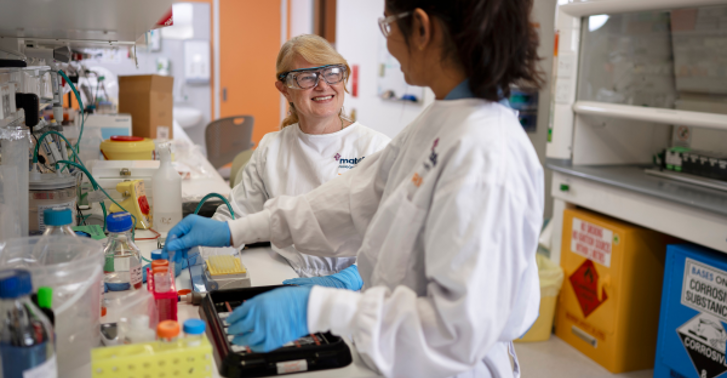Do you have early breast cancer, and have had complete surgical removal of your tumour?
Estrogen receptor (ER)-positive, HER2-negative breast cancer
Surgical removal of tumor
The purpose of this study is to compare the effects, good or bad, of giredestrant versus an approved endocrine therapy (a treatment that blocks or removes hormones), on patients with your type of cancer. Giredestrant is an experimental treatment, which means this new drug is being investigated to treat your type of cancer, but it has not been approved by health authorities including the Therapeutic Goods Administration (TGA) in Australia for cancer treatment or treatment of any other disease.
Giredestrant is designed to block the sex hormone called estrogen that contributes to your cancer's growth.
In this study, you will get either giredestrant or a drug chosen specifically for you by your study doctor. You can participate in this study based on your breast cancer characteristics, your current condition and how well you tolerated previous anti -cancer therapies.
What you need to know
Who can take part?
- Patients with early breast cancer who have had complete surgical removal of their tumor.
Exclusions:
- Patients with active cardiac disease, a history of blood clots or advanced cancer
What is involved for you?
- Monthly visits for the first three months, then 3 monthly visits for the duration of the trial
- Blood tests at each visit
- Bone density scan every two years while on trial
- Tumor assessment via CT/ PET/MRI scan as needed
- Mammograms yearly
- Physical exams, vital signs, ECG and health questionnaires at each visit
- Treatment for at least five years and long term follow up for at least five years
Trial dates
This trial is accepting participants.



